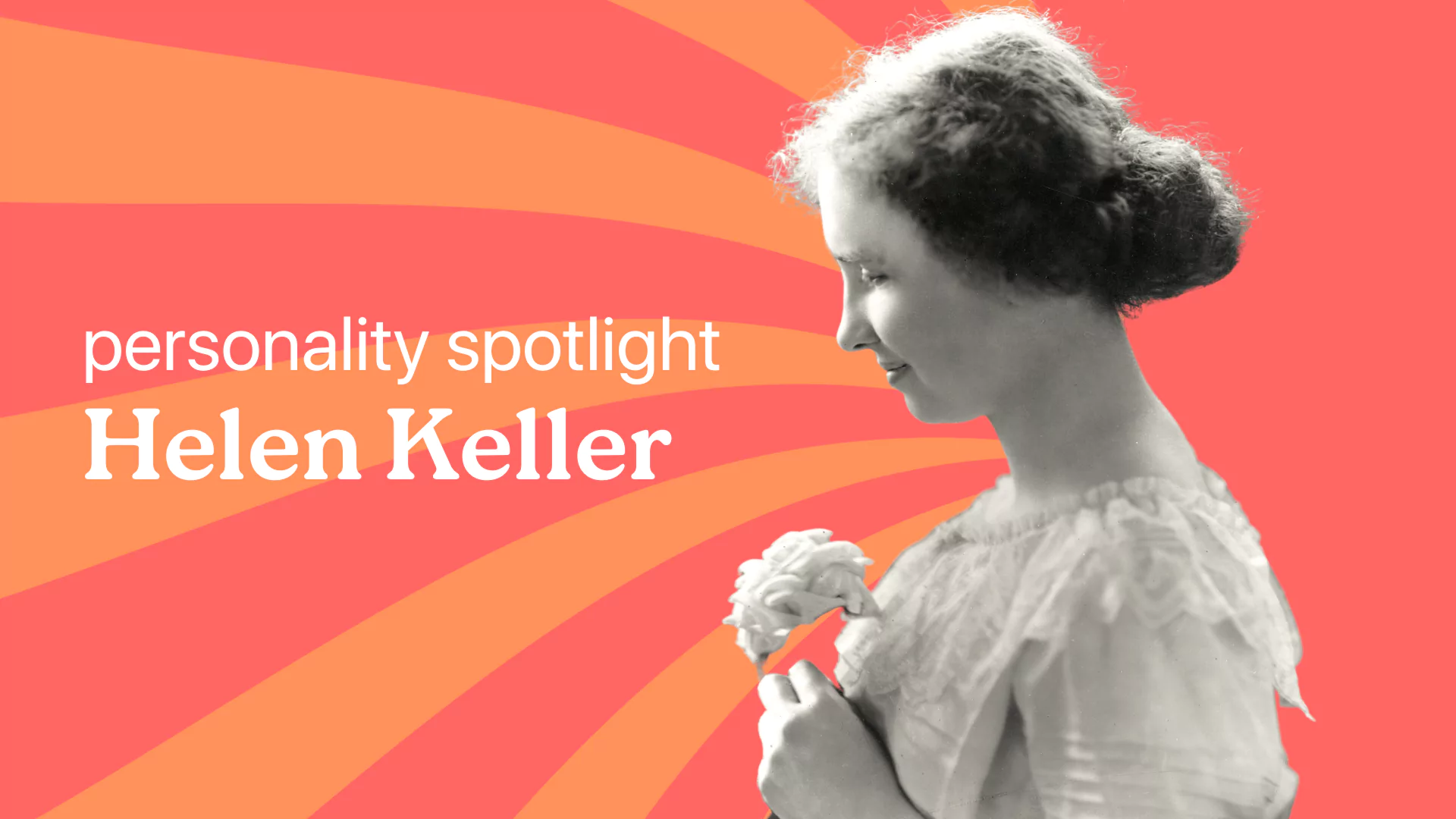When students learn about Helen Keller, they often learn about her efforts to communicate as a little girl, and she is, for the most part, portrayed only as a child. This plays a role in the students’ perception of disabled people, and results with them infantilizing disabled adults.
There’s a lot more to Keller that the world should know about - the reputable and the controversial.
More Than Just Learning To Communicate
Here’s a brief timeline of her life:
- 1882: Contracted meningitis and became deaf and blind at 19 months.
- 1903: Published her first book and an autobiography The Story of My Life.
- 1904: Graduated from Radcliffe College becoming the first deafblind person to earn a college degree.
- 1919: Starred in the silent film, Deliverance and began a successful five-year career on the vaudeville circuit
- 1924: Lectured all over the US and was spokesperson for the American Foundation for the Blind.
- 1955: Won an Oscar for a documentary on her life, Her Story.
- 1964: Awarded the Presidential Medal of Freedom for being a leading humanitarian.
- 1968: Died peacefully on June 1 in her sleep, a few weeks before her 88th birthday.
One of the reasons Keller’s adult life isn’t taught about in school is because she was involved in groups perceived as too radical throughout American history.
- Helen Keller was a suffragist, a champion for women’s rights and birth control.
- Her socialist and pacifist’s political views were considered so extreme that her books were burned by Nazis during WW2.
- She even got into controversies by writing about the last judgement day and the reincarnation of Jesus.
- Helen was investigated by the FBI for a significant part of her life for connections to the Communist party.
While most are aware of Keller’s early struggle with meningitis, her accomplishments as the first deafblind person to graduate from college and her stints on the vaudeville circuit stand as testaments to her drive. Yet, it wasn’t always rosy. Her socialist beliefs, staunch suffragist stand, and writings so radical that the Nazis burned her books, all paint a multifaceted picture.
Love and Relationships
At 36 years old, Helen Keller fell in love with Peter Fagan, her secretary at the time, and the two planned to elope.
At the time, it was considered absurd for women with disabilities to experience romance - let alone get married. The two even managed to get a marriage license before Keller’s family found out and forbade them from going any further. Helen regrets not marrying, later saying, “If I could see, I would marry first of all.”
Addressing the Controversial
Despite being a beacon of hope for deafblind folks and a pivotal force by propounding the creation of inclusive services rendered towards her like, Keller can hardly be excused for publicly supporting eugenics.
In 1915, she wrote in favor of refusing life-saving medical procedures to infants with severe mental impairments or physical deformities, stating that their lives were not worthwhile and that they would likely become criminals, under the pretext of having deep concerns about human overpopulation.
This makes us wonder, did she really come into her own fame and fortune because of her struggles, or was she just another privileged, wealthy, hypocritical white woman? Is she just another puppet pioneer who inadequately represents the deaf-blind populace?
Acknowledging the Privilege
Now, Keller is unique because she was the first deafblind person to achieve incredible feats - but that, too, might also be because she was white.
Take, for example, Geraldine Lawhorn, who was the first deafblind African American to get a college degree. She was born in 1916, and was alive during Helen’s own lifetime, but she wasn’t able to get her degree until 1983 at age 67. Helen, by contrast, received her degree at age 24 in 1904. The white privilege is undeniable.
Finally, The Deep Dive
We must recognize that her struggles to learn to adapt to a seeing and hearing world were very real and she made it possible for herself and others to make a change.
But if she hadn’t come from an affluent family and made strong connections with prominent personalities (like Alexander Graham Bell and Mark Twain), she probably wouldn’t have made it. To some Black disability rights activists, like Anita Cameron, Helen Keler wasn’t radical at all, and “just another, despite disabilities, privileged white person”.
It’s disheartening that the history of disability has been white washed with stories like Keller’s, which project their personalities like messiahs, and overshadow stories of other people of color who truly clawed their way to the top with sheer resilience and grit. As we remember Keller, it’s vital to remember all of her, the good, the bad, and the radical.

 Tone Indicators: Enhancing Online Communication
Tone Indicators: Enhancing Online Communication